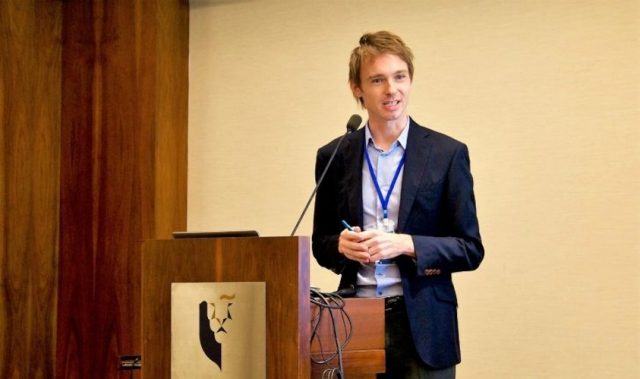
AsianScientist (Aug. 30, 2018) – By Sim Shuzhen – A leisurely stroll through downtown Singapore isn’t just good physical exercise. As you pass churches, mosques, temples and a synagogue, the walk also doubles up as a short exploration of the island nation’s diverse religious heritage.
“Singapore is a secular state with a multi-religious society… the multiplicities of religions are everywhere evident,” said Professor Lily Kong, Provost and Lee Kong Chian Chair Professor of Social Sciences at Singapore Management University (SMU).
This balance of secularity and religious pluralism provided just the right backdrop for the inaugural conference of the East Asian Society for the Scientific Study of Religion (EASSSR), themed ‘Religiosity, Secularity and Pluralism in the Global East’, added Professor Kong, who delivered the welcome remarks at the event.
The conference, held at SMU from 3-5 July 2018 and hosted by the university’s Wee Kim Wee Centre, also saw the launch of the EASSSR, an international academic community for social scientists who study religion in East Asia. After the idea for its establishment emerged out of a dinner table conversation a year ago, various academic institutions and individuals have been hard at work bringing it to fruition, said Professor Kong.
“We’re happy to be the site of the announcement and the first meeting,” she added.
The odd one out
East Asia is home to countries with diverse and distinct ideologies, stages of economic development and religious cultures, said EASSSR founding president Professor Yang Fenggang, director of Purdue University’s Centre on Religion and Chinese Society, during his presidential address. As a result, the region—which comprises some 30 percent of the world’s population—doesn’t fit into traditional East-West or North-South geographic groupings, which are Euro- or North Atlantic-centric notions, he said.
While exploring the link between religious ideologies and economic systems in the early 20th century, the influential sociologist Max Weber considered Confucianism and Taoism the main religions of China, and Hinduism and Buddhism those of India. But the reality was in fact very different, said Professor Yang.
“By the time of Weber’s writing, Buddhism had been a major religion in East Asia for more than a thousand years, and was negligible in India. More importantly, shamanism and folk religions were prevalent throughout East Asia; furthermore, several institutionalised religions co-existed without a religious monopoly, which was very different from the West or Muslim-dominant countries,” he explained.
Today, surveys show that Christianity is a major religion in countries such as South Korea and Vietnam, said Professor Yang. Yet, the increasing attention paid by western scholars to the spread of Christianity in the Global South—to which many countries in East Asia would not belong—leaves out large numbers of adherents in East Asia.
“We need to do more to change the grand discourse that renders East Asia invisible and incomprehensible,” urged Professor Yang.
The Global East: a better fit
East Asian religion has many distinct characteristics that pose a challenge to scholars, continued Professor Yang. For example, religious identity is often non-exclusive—many people combine elements from Confucianism, Taoism, Buddhism and other sources to form an individualised spirituality. Yet, existing measures of religiosity are primarily based on a Judeo-Christian understanding of religious identity, membership and attendance.
“The cultural and social differences between East Asian societies and the rest of the world make it necessary to adopt a new concept—that of the Global East,” said Professor Yang. “Global East societies share some common cultural traditions, including Confucianism, Taoism and the local or folk religions. But this is not to gloss over the internal differences between East Asian societies—good scholarship should examine both particularities and commonalities, but the commonalities deserve to be examined carefully.”
Scholars of the Global East should strive to address research questions with care and nuance, and with systematically collected data and objective analysis, Professor Yang added.
“I hope [the EASSSR] will become a platform for scholars who study religions in this part of the world to regularly engage with each other. I think in due time we will have new methods and new theories, and contribute to the social scientific study of religion in general.”
Embracing conflict and tolerance
During one of the breakout sessions that followed, Professor Song Francis Jae-ryong of Kyung Hee University tackled the topic of religious pluralism in the Global East. Eastern religions, he said, tend to be less concerned with doctrinal purity and more open to the blending and exchange of ideas.
“In the West, interreligious conflicts caused war and violence, while in East Asia, conflict and tolerance got joined together, leading either to coexistence or to new syncretised forms of religion,” he explained.
Professor Song proposed a new framework for this compromise between conflict and tolerance, which he called the ‘politics of good competition’.
“Interreligious dialogue is basically a process of mutual recognition between religions. However, at the same time, it should be understood as a process involving a good competition between them.”
A key aspect that religions compete over is whether they fulfil the values, perspectives and goals that East Asian citizens want to advance, with regards to humanitarian visions such as equality and freedom, said Professor Song.
“The success or failure of such a good competition depends on whether any religion has a bearing on the realisation of humanitarian visions.”
“In a rapidly globalising world, we are able to take in not only more knowledge and information about other religious traditions and cultures, but also opportunities to directly face and experience them,” concluded Professor Song. “Therefore, the possibility of good competition through dialogues and discussions, held more objectively and reflexively, on various forms of religious life is increasing.”
Asian Scientist Magazine is a media partner of the Singapore Management University Office of Research & Tech Transfer.
———
Copyright: SMU Office of Research & Tech Transfer. Read the original article here; Photo: Sim Shuzhen/SMU.
Disclaimer: This article does not necessarily reflect the views of AsianScientist or its staff.












